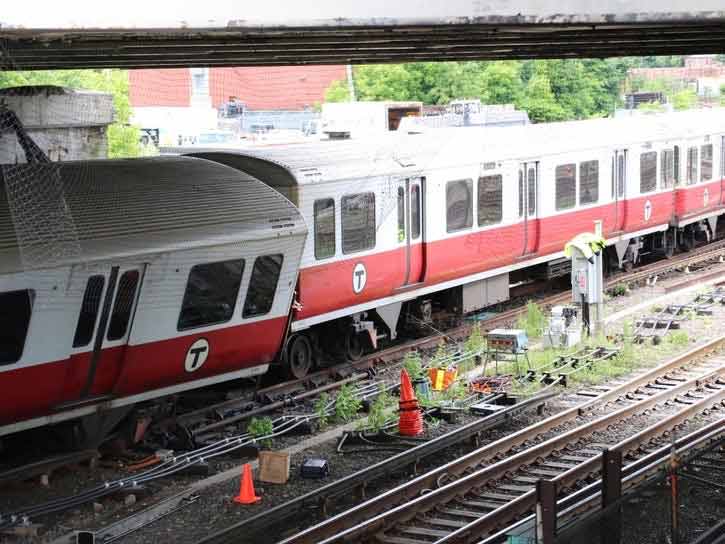
The MBTA hired a group of experts to evaluate its safety. The final reports posted on December 9, 2019 were harsh, reporting many deficiencies in premises safety and procedures.
Following a train derailment in June, where luckily only one person was injured, a panel of highly skilled professionals were brought in to work out the safety issues within the system. The panel included high-ranking safety officials such as a former U.S. transportation secretary; a Federal Transit Administration official; and a late New York City Transit President. They interviewed hundreds of MBTA employees and conducted many site visits in order to test the MBTA’s safety features and report on potential hazards and essential improvements.
Though the MBTA consistently remarks that safety is their number-one priority, it’s apparent that systemic failures at the organization have resulted in numerous safety concerns addressed within the report. With deficiencies found in almost every area studied, we can hope that the MBTA puts the necessary work into raising its safety standards. Our using public has the right to expect that the MBTA will make systemic changes, will allocate sufficient time and capital into preventative inspections and will require quality control measures. Based on the report, the MBTA previously had a questionable approach to safety.
A summary of some of the reasons safety is lacking at the MBTA follows:
- Quick leadership turnover –
- Since 2010, the MBTA has appointed nine general managers. The quick turn-around rate is viewed as incredibly disruptive for the agency.
- Cost-cutting efforts –
- Cost-cutting goals of the MBTA had workers speeding up the pace of a five-year $8 billion improvement plan.
- With employee cuts and extra work needing to be done, less time was put into required maintenance and inspections.
- Rather than being dedicated to hiring the correct personnel needed to professionally complete tasks at hand, the the MBTA has been more interested in saving money and capital acceleration.
- Negative workplace culture –
- Employees “lack trust” and “fear retribution” within the MBTA, thus there is a lack of communication between employees and their supervisors.
- Employees are fearful of layoffs, so they feel discouraged from reporting problems to their superiors.
- Many requests for safety equipment or extra support went unanswered, leading to employees losing faith in MBTA management.
This doesn’t mean that the MBTA is “unsafe” to ride every day. However, there are changes that must be made within the organization in order to prevent ongoing predictable dangers and safety concerns related to MBTA services or on MBTA properties.
We applaud the MBTA for making public its commitment to taking the necessary steps toward ensuring the health, happiness, and overall safety of their employees and clientele. We expect that their actions speak louder than their words in the days, months and years ahead. The MBTA needs systemic change and needs to invest more time, money, and training into transit safety, employee satisfaction, workplace culture, and less frequent leadership turnover.
If you have questions about unsafe conditions at the MBTA, feel free to contact our team at Diller Law, LLP.
